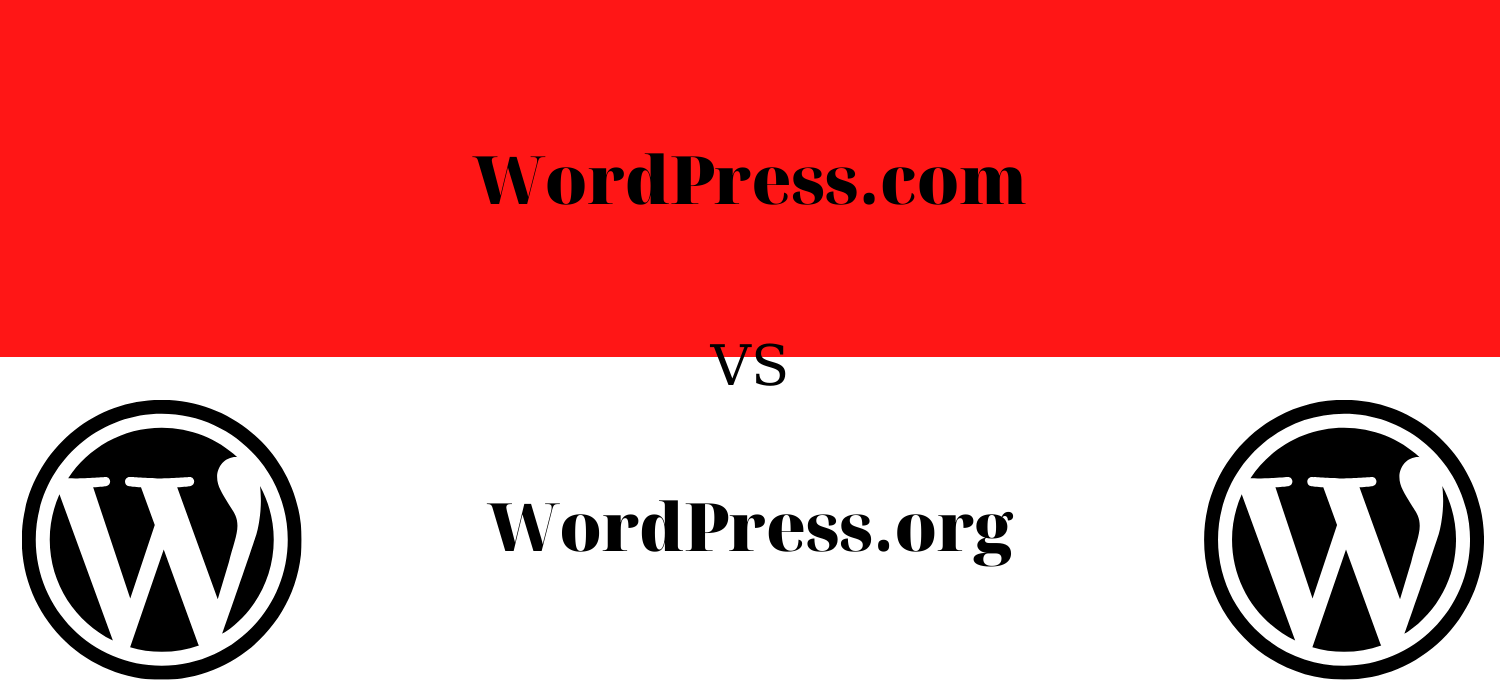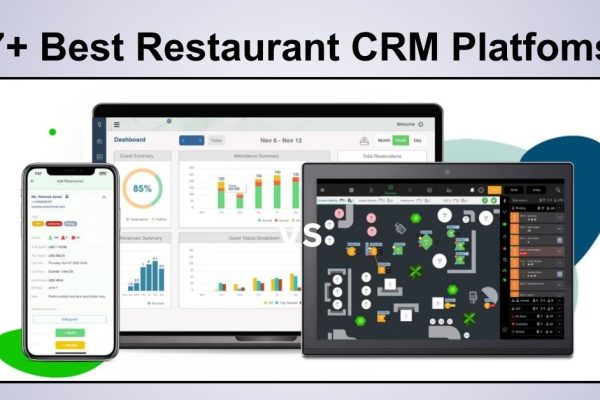WordPress.com vs WordPress.org: Which Should You Choose?

Are you planning to build a website and feeling confused by the choice between WordPress.com and WordPress.org?
Due to their nearly identical names, many beginners find it challenging to understand the distinction between these two platforms.
While both are related to the world’s most popular content management system, they offer fundamentally different approaches to creating a website.
Choosing the right platform from the start is a critical decision for your online success. This guide will provide a clear, detailed comparison of WordPress.com vs WordPress.org, explaining the advantages and disadvantages of each.
We will explore key aspects like cost, flexibility, ease of use, and monetization to help you make an informed choice for your project.
What is WordPress.org?

WordPress.org is often referred to as “self-hosted WordPress.” It is the open-source, free-to-download software that has powered over 43% of the internet. When people talk about the power and flexibility of WordPress, they are typically referring to WordPress.org.
To use this version, you need to purchase a domain name (e.g., yourwebsite.com) and a web hosting plan from a provider. You then install the WordPress software on your hosting account. This process gives you complete and total ownership of your website.
Advantages of WordPress.org
- Complete Control and Ownership: With WordPress.org, you own your website and all its data. You have full control and are not subject to another company’s terms of service, meaning your site cannot be suspended for a violation.
- Unlimited Customization: You have the freedom to install any of the thousands of free and premium WordPress themes. More importantly, you can install any plugin you want, adding powerful features like contact forms, forums, online stores, and membership areas.
- Full Monetization Freedom: You can run any ads you choose, without sharing revenue. You can freely use affiliate marketing, sell digital or physical products, and integrate any payment gateway. The decision of how to make money from your site is entirely yours.
- Advanced Analytics: You can integrate powerful tracking tools like Google Analytics to get detailed insights into your website’s performance and user behavior.
- Scalability for eCommerce: WordPress.org is an exceptional platform for building an online store. With plugins like WooCommerce, you can sell products, manage inventory, and process payments directly from your site.
Disadvantages of WordPress.org
- Website Management: As the owner, you are responsible for all technical maintenance. This includes updating the WordPress core software, themes, and plugins, as well as performing regular backups of your site.
- Initial Costs: While the WordPress software is free, you must pay for a domain name (around $10-20/year) and web hosting (starting from $3-10/month). Costs can increase as your site grows and requires more resources.
- Learning Curve: Although user-friendly, setting up a self-hosted site involves a few more steps than the alternative. Beginners may need some time to familiarize themselves with the dashboard and management tasks. The debate of WordPress org vs WordPress com often hinges on this point of user responsibility.
What is WordPress.com?

WordPress.com is a for-profit, hosted website service that uses a modified version of the WordPress software. It is owned by Automattic, a company co-founded by one of the original creators of WordPress, Matt Mullenweg.
With WordPress.com, you can create a website without having to buy separate hosting. It offers a tiered plan structure, starting with a very basic free option and scaling up to expensive Business and Commerce plans that unlock more features.
Advantages of WordPress.com
- Ease of Use and Setup: Getting started is extremely simple. You just sign up for an account, choose a plan, and you can have a basic site live in minutes. There is no need to worry about hosting or software installation.
- Managed Maintenance and Security: The WordPress.com team handles all technical aspects. They manage server performance, security, software updates, and backups, allowing you to focus purely on creating content.
- Low Initial Cost: The free plan allows you to create a website at no cost, which is great for hobby bloggers or those testing an idea. However, this free plan comes with significant limitations.
Disadvantages of WordPress.com
- Limited Control: On the free and lower-tier plans, your options are very restricted. You cannot install your own plugins or upload custom themes. This severely limits your website’s functionality and design possibilities.
- Monetization Restrictions: The free plan displays WordPress.com’s own ads on your site, from which you earn no revenue. To monetize your site with your own ads, you generally need to be on a higher-priced plan, and even then, there may be restrictions.
- Branding and Domain: Free websites come with a subdomain (e.g., yoursite.wordpress.com) and display “Powered by WordPress.com” branding. To use a custom domain and remove this branding, you must upgrade to a paid plan.
- Ownership Concerns: WordPress.com can suspend your website at any time if they believe you have violated their Terms of Service. You have less direct control over your digital asset compared to a self-hosted site. The question of WordPress com vs WordPress org often comes down to this trade-off between convenience and control.
Feature Comparison: WordPress.com vs WordPress.org
| Feature | WordPress.org (Self-Hosted) | WordPress.com (Free & Low-Tier Plans) |
| Cost | ~$50-$100+ per year for domain & hosting | Free (with significant limitations) |
| Hosting | You choose your own provider | Included and managed for you |
| Control | 100% full control over every file | Limited; governed by terms of service |
| Plugins | Yes, install any free or premium plugin | No (available on high-tier plans only) |
| Themes | Yes, upload any free or premium theme | Limited to a pre-approved selection |
| Monetization | Full freedom (ads, eCommerce, etc.) | Restricted; ads are placed on your site |
| SEO | Full control with advanced tools | Basic built-in tools; limited |
| Maintenance | Your responsibility (updates, backups) | Handled for you by the service |
WordPress.com vs WordPress.org: Which Should You Choose?
The decision between WordPress.com vs WordPress.org ultimately depends on your goals, budget, and technical comfort level.
You should choose WordPress.org if:
- You are a business, a professional blogger, or anyone serious about building an online presence.
- You want full control over your website’s design and functionality.
- You plan to monetize your website through ads, affiliate links, or by selling products.
- You want to build a complex site like an eCommerce store, a membership site, or an online course platform.
You should choose WordPress.com if:
- You are a hobby blogger who simply wants a platform to write and share content.
- You need a simple personal website or portfolio and do not want to manage technical details.
- You are not concerned with monetization or advanced customization.
- Your budget is zero, and you are comfortable with the limitations of the free plan.
In summary, the choice between wordpress.org vs wordpress.com is about balancing simplicity with power. WordPress.org offers limitless potential but requires more responsibility. WordPress.com offers convenience but with significant restrictions.
FAQs About WordPress.com vs WordPress.org
1. Which platform is better for beginners?
For absolute technical beginners who want the simplest possible start, WordPress.com is easier. However, most hosting providers for WordPress.org offer one-click installation, making the setup process nearly as simple. For long-term growth, learning WordPress.org is more beneficial.
2. Can I switch from WordPress.com to WordPress.org later?
Yes, you can. It is a common migration path for users who start on WordPress.com and later need more functionality. The process involves exporting your content from WordPress.com and importing it into a new self-hosted WordPress.org installation.
3. Which is better for SEO, WordPress.com or WordPress.org?
WordPress.org offers a significant advantage for SEO. You have full control to install powerful SEO plugins like Yoast SEO or Rank Math, implement advanced schema, and optimize every aspect of your site for search engines. WordPress.com’s SEO tools are much more limited, especially on lower-tier plans.
4. What are the true costs of a WordPress.org site?
A basic WordPress.org website can be started for around $40-$60 per year, which covers the domain name and a shared hosting plan. Costs can increase if you decide to purchase premium themes or plugins, but thousands of excellent free options are available.
5. Is a free WordPress.com site truly free?
Yes, you can create and run a site on WordPress.com without paying. However, it comes with trade-offs: a WordPress.com subdomain, their ads on your site, limited storage space, and no ability to install plugins. This is a crucial point in the WordPress com vs WordPress org comparison.
Conclusion: WordPress.com vs WordPress.org
The WordPress.com vs WordPress.org debate is a pivotal one for anyone entering the WordPress ecosystem. WordPress.org provides the freedom, control, and scalability necessary for almost any serious website project, from a growing blog to a large eCommerce enterprise. While it involves a bit more responsibility, the long-term benefits are substantial. In contrast, WordPress.com serves a different purpose, offering a managed, hands-off solution ideal for personal projects where convenience is valued above all else. For most users aiming for growth and professional results, the self-hosted WordPress.org platform is the superior choice.
Read more: WooCommerce vs Shopify: The Best Choice?
You may also like
7+ Best Restaurant CRM Platforms to Boost Revenue
Posted on December 23, 2025Running a successful dining establishment requires more than just excellent food and service; it requires data.
When profits are tight, building repeat customer relationships determines whether a business can succeed.
A restaurant CRM plays a crucial role as a high-value business asset.
Industry statistics frequently
7+ Best Help Desk Software for Travel and Hospitality
Posted on December 2, 2025Are you overwhelmed by a flood of booking inquiries, last-minute cancellations, and guest requests scattered across email, phone calls, and social media?
In the travel and hospitality industry, response time is the currency of trust.
A delayed response to a traveler stranded at an airport or a guest







